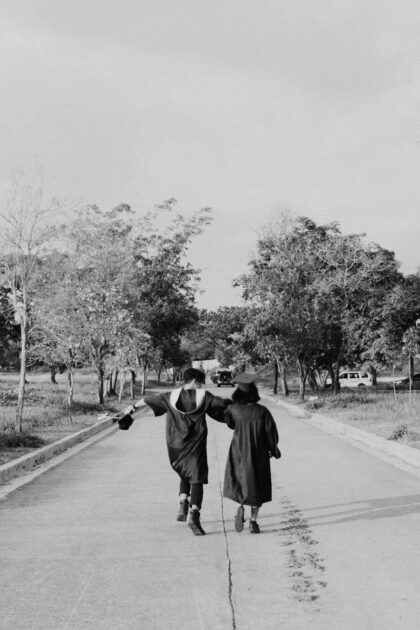
So far, the explanation for dreams which resonated most for me came from Anil Seth’s book Being You. The overall thesis of the book is that our conscious experiences are really predictions about the world around us which are updated based on input from our senses. Dreams, then, are what happens when the predictive aspect is decoupled from sensory corrections. Thus our dreams contain elements from our actual experiences but unconstrained by the need to correspond to anything, even themselves moment-to-moment. That doesn’t mean dreams cannot ever be prophetic or a medium of communication from God, as the Bible describes in the cases of Daniel and the Josephs. But it helps me make sense of my typical boy-I-hope-that-wasn’t-a-divine-message dreams.
The Emerging Scholars Network is inviting posts on your dreams for the academy. I thought maybe I’d help get the ball rolling with a few thoughts of my own. Now, keep in mind that, like Anil Seth’s version of your sleeping brain, I have minimal direct input from today’s campuses. I haven’t been in academia for 16 years, so long that now my kids are old enough to be on the verge of academia themselves. My oldest will be an undergrad this fall, and my youngest expects to follow next fall. Of course I have hopes and dreams for their experiences, but naturally those are a secondary consideration to their own dreams. I had my chance to be an undergrad; I need dreams that are more appropriate to my life stage.
What I would like to see is a way for academia to become more distributed. Already we are seeing this unfold with the proliferation of online courses. Obviously watching lectures on YouTube or taking multiple choice quizzes with unlimited do-overs cannot replicate everything about the in-person university experience. I wouldn’t want that experience to go away, but I am glad that alternatives are available to make university-level education more accessible for everyone who is not in a position to go to college or who wants to continue their education on their own terms.
Online classes expand opportunities for learners, but learners are only one side of the academy. What I would like to see is a more distributed version of some other academic roles. Specifically, I’d like to figure out how to make research something that more people can participate in. Admittedly, this is self-serving, but my hope is that it is not merely self-serving. If we can increase the number of people conducting research, we should increase how much we are collectively learning, which should benefit everyone.

As best as I can tell, we are producing more PhDs than we have academic positions to occupy, across a whole range of disciplines. And the rate seems to be increasing. Certainly some of those folks go into jobs in other sectors that make fruitful use of their training. But I don’t think everyone experiences that level of fulfillment. And I don’t think everyone who does have a related job is necessarily employing all of their skills. Or at least that has been my experience. I work for a public health software company, which is certainly related to my public health PhD training. But although my job title is Chief Science Officer, much of my job requires what I see as ancillary science skills. I do a lot of coding and data science, which uses skills that I developed as an undergrad and grad student in the sciences. But that’s not what makes one a scientist; in fact, many of the actual scientists I worked with as a student found me useful precisely because they did not have those skills. Or to put it another way, just because I had to wash glassware as a science student doesn’t meant doing the supper dishes feels like doing science.
And so I find myself increasingly desiring to dig into actual research. This was part of the motivation behind my evolutionary computation post series, which did not prove to be very popular. So I won’t belabor the issue here; we’ll try something else instead. I’m dreaming of a research group that isn’t tied to a particular university or even a particular place. Why not run a lab, or a whole network of labs, online? There are drawbacks, to be sure, but if the alternative is nothing, even a partial solution seems appealing.
Obviously I can’t train graduate students or grant degrees, so I don’t really imagine I’ll be a PI overseeing a team of postdocs and PhD candidates. Instead I’m hoping to find other folks like myself, folks looking to practice science as a secondary pursuit. I’m not looking for people to further my research; I want to see if we can support each other in our own projects. We can have a journal club(s) and lab meetings to review progress and offer ideas–and perhaps most importantly, encouragement–for each other as peers. That’s not to say there will be no learning opportunities or that there’s particular credentials required, but I can’t offer anything that will be formally recognized.
Now, I realize there are some practical issues that may be difficult to resolve, if not intractable. Research costs money, and research dollars are perpetually scarce relative to researchers. If there were more research dollars to go around, arguably there would be more academic positions for researchers to fill. And I don’t want to simply shift money away from universities, because that would just mean different people doing research, not more people. So, at least to start, we’ll probably need to focus on research that can be done cheaply. That probably means analyzing public data sets, or generating data via simulations, or doing theoretical work. That still leaves plenty to do, especially since we appear to be collectively generating data faster than we can learn from it.
My dream is that we can help each other pursue our vocation and use all the gifts God has given us to the fullest without the limitations of what our jobs need. If that sounds like something you’d be interested in, feel free to comment below, message me on Facebook, or join the Discord server I’m setting up for this dream. And if it’s not for you, that’s OK, I don’t expect it to be for everyone. But maybe you can pass the word along, or maybe you can start something similar for researchers in other disciplines.
Maybe you have your own dream for the academy. There were details in the June ESN newsletter, but if you missed it here are the submission details:
- Suggested article length: a paragraph to a page (1000 words max).
- Submissions: Via Word .docx to bob.trube at intervarsity.org
- A bonus: all accepted article contributors will receive a free book of their choice up to $50 retail from InterVarsity Press
Andy has worn many hats in his life. He knows this is a dreadfully clichéd notion, but since it is also literally true he uses it anyway. Among his current metaphorical hats: husband of one wife, father of two teenagers, reader of science fiction and science fact, enthusiast of contemporary symphonic music, and chief science officer. Previous metaphorical hats include: comp bio postdoc, molecular biology grad student, InterVarsity chapter president (that one came with a literal hat), music store clerk, house painter, and mosquito trapper. Among his more unique literal hats: British bobby, captain’s hats (of varying levels of authenticity) of several specific vessels, a deerstalker from 221B Baker St, and a railroad engineer’s cap. His monthly Science in Review is drawn from his weekly Science Corner posts — Wednesdays, 8am (Eastern) on the Emerging Scholars Network Blog. His book Faith across the Multiverse is available from Hendrickson.

Leave a Reply